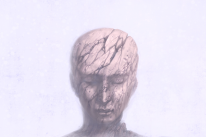
“Not all who wander are lost.” ~J.R.R. Tolkien
Sometimes as humans we lose sight of our profound inner resourcefulness—the wellspring of creativity and strength that has kept humanity reinventing itself over and over again.
It happens to everyone. We get lost in comfortable routines, become discouraged from trying new things, and forget how to play.
When life feels disappointingly status quo, it’s easy to keep floating downcurrent as you tell yourself, “Welp, I guess this is as good as it gets.”
I don’t know about you, but I’ve definitely caught myself in a trap of wondering if the best is behind me.
Thankfully, one of our instinctual superpowers is knowing how and when to start over or ask for more.
Found deep in your psyche, you have an archetype known as the Wanderer who carries a wisdom on how to help you let go of misaligned, limiting, or outright unhealthy situations in pursuit of something better—whether it’s a job, relationship, or lifestyle.
Archetypes are universal personality types and instinctual behavior patterns that we inherit from our ancestors that cut across all cultures. They’re inherent structures found deep in our psyches that offer us gifts and strengths that make us whole and well-rounded.
Archetypes are especially useful as inner allies that help us grow through different phases or challenges in our lives. Becoming a parent, solving a unique problem in your industry, or rediscovering yourself in mid-life are all occasions where a certain archetype may emerge.
The Wanderer is about leaving behind the familiar and entering the unknown. We see the Wanderer making an entrance when someone undergoes big transitions, such as getting a divorce, changing careers, or initiating a spiritual journey.
The Wanderer is one of my favorite archetypes because it’s helped me stay in touch with my heart, mind, and body during tumultuous periods of my life. In particular, there’s one leap of faith that I couldn’t have taken without the aid of this powerful archetype.
A few years ago, I was working a nine-to-five job in international education for university students, where I would send students across the world for a semester or summer. It was a deeply fulfilling and enormously fun job, but eight years into the field, I started struggling with the lack of flexibility of a forty-hour office job, and my body rebelled against the sedentary nature of desk work.
I ended up on partial disability due to computer-driven repetitive stress injuries in both arms. For eight months I suffered from severe inflammation. It gradually got better, but my doctor told me I would likely never fully return to normal.
No longer physically able to work at a desk full-time, I had to reimagine my future.
As a highly sensitive person with a history of chronic pain, I was determined to find a new line of work that wouldn’t require me to sacrifice myself. With a plan in mind of building my own business, I decided to leave my desk job permanently.
I didn’t need anyone’s permission.
I wasn’t waiting for a sign.
I just made up my mind with the hard-headed tenacity that’s typical of the Wanderer—it was time to go.
I had a vision for how I wanted to shape my future. It felt like an uncontrollable itch I needed to scratch. Even though I loved the security of a salaried job with benefits, I couldn’t ignore the flashing warning lights coming from my body. Admittedly, my gut had also been nudging me to go work for myself long before I ended up on disability.
I considered the next couple of steps to leave my career, but I didn’t have a detailed long-term plan. I felt a sense of inner trust and authority that I would land on my feet. I was ready and willing to make a humble living in the service industry as I built my business in my spare time. So, with a lot of courage and plenty of unknowns, I started over.
I thank my inner Wanderer for making it possible.
I can point to several other occasions in my life where I made a sudden change following a period of feeling lost or unmotivated. One of the hallmarks of the Wanderer is that it often becomes “activated” after you’ve endured a period of misalignment in your life that becomes intolerable.
It often feels like a courageous awakening when you realize what you must do for yourself. Everyone needs a fire under their ass from time to time, and the Wanderer is precisely good for it.
The hallmark quality of the Wanderer is that it takes responsibility for creating change.
It doesn’t blame other people or circumstances for their predicament.
It doesn’t mope or complain.
It doesn’t flounder needlessly.
The Wanderer is about taking risks.
Whether you’re considering leaving an unhealthy relationship, a toxic job, or a lifestyle you’ve outgrown, you have to take risks. It might be an emotional risk, a financial risk, or a risk of vulnerability.
I like to think that the Wanderer is here to remind me of who I’m becoming. When I start to think to myself, “I made it!” I’m always amazed to discover that I still have far to go. But I know I can count on my ingenious Wanderer to support me in taking the next necessary risk.
If you’re teetering on the fence in a certain aspect of life, here are some tips on how to partner with your Wanderer to rediscover what’s possible.
Tips for Partnering with Your Wanderer
Start small and move slowly.
I am not a proponent of rapid, overnight growth and change. Most people crash and burn when they rush into new experiences.
The truth is that you can only move as fast as your body will allow you—physically, emotionally, and spiritually. There are no shortcuts. Start where you are. Use the skills and resources you have. Grow your capacity to do big, extraordinary things little by little.
The easiest way to do this is by identifying the next smallest step one at a time. You don’t need to worry about what step ten is or how you’ll manage step twenty when you haven’t even taken the first step. Just focus on what you can do right now.
Choose your mindset wisely.
The Wanderer’s perspective is that there are no failures in life, only feedback and learning. Embodying this mindset will save you countless hours wasted on self-sabotage, pointless self-blame, and stewing in a victim cycle.
The key is staying curious. When you try something new that feels risky and it doesn’t go the way you want, get curious. Self-loathing is cheap and easy, but practicing curiosity and self-kindness is the admirable, high road.
If you feel yourself spiraling into thoughts and emotions that are abusive or critical, you won’t find a shred of useful wisdom that will help you pivot and move forward. Negative thoughts are neural pathways that become stronger the more you reinforce them. But you don’t have to forcibly plaster shiny, positive thoughts on top of them.
Instead, focus on regulating your nervous system.
A triggered nervous system sees the world through a lens of danger, disappointment, and hopelessness. If you arm yourself with a few tools to self-regulate, you’ll find it easier to return to the curiosity and kindness of the Wanderer mindset.
The best self-regulating tools are simple and quick. Here is a favorite go-to of mine. Start by gently tapping around your collarbone with your fingertips. Then, bring in breath. Take in an inhale for a count of four and exhale out twice as long. Repeat at least twice more, or continue for as long as it feels good.
When you’re done, take a break from what has triggered you and do something that feels kind and nurturing. Revisit the situation at hand when you’re feeling resourced and have access to a completely different perspective. The best insight and creativity come when you’re grounded and regulated.
Nothing can guarantee you a soft landing into the next chapter of your life—which is to say, the road can get pretty bumpy and uncomfortable.
In fact, you can pretty much count on it.
But the mishaps and curveballs will make you sharper and lighter on your toes. You don’t need to nail every risk you take. Let yourself fall apart so you can put the pieces back together better next time.
The Wanderer is ultimately about self-discovery. What do you find out about yourself when you re-enter the dating world after twenty years of marriage or when you pitch your creative writing to ten different publishers?
You can’t possibly know what you want in life or what you’re capable of if you keep floating downstream passively.
Life is an adventure, so keep asking yourself: What would the Wanderer do?
About Krissy Loveman
Krissy Loveman is a neuroscience-informed Life Coach. She works with the conscious and unconscious mind to create deep, lasting change. Get her free toolkit to jumpstart your inner work journey.













 Though I run this site, it is not mine. It's ours. It's not about me. It's about us. Your stories and your wisdom are just as meaningful as mine.
Though I run this site, it is not mine. It's ours. It's not about me. It's about us. Your stories and your wisdom are just as meaningful as mine.